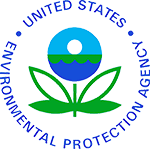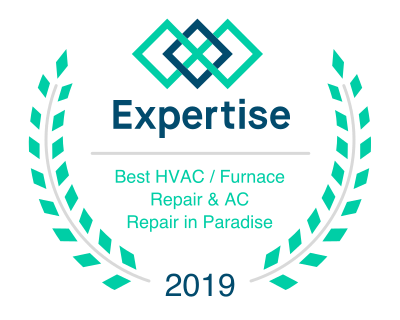Are you tired of constantly battling allergies, asthma, or simply feeling uncomfortable in your own home due to poor air quality? Have you noticed irregular temperatures in different rooms? If so, it might be time to check your thermostat in addition to taking action to improve the air you breathe.
A dirty filter or a faulty thermostat can lead to increased energy bills and costly repairs, not to mention exacerbating allergies and respiratory issues. Regularly scheduled professional service can help identify these issues early on. This comprehensive guide on how often to change your HVAC filter and check your thermostat will help you improve your home’s air quality in no time.
What is an Air Filter & How Does it Work?
An air filter is a vital component of your HVAC system that traps particles, allergens, and other airborne contaminants, preventing them from circulating through your home and into your vents. It’s a silent guardian, ensuring that the air you breathe is clean and healthy. Moreover, make sure to lubricate parts of the HVAC system for optimal performance.
The filter acts as a barrier, catching dust, dirt, and debris before they have a chance to enter your living space through ductwork. So, it’s essential to know how often to change the HVAC filter and how often to check, clean, and lubricate your vents, as this will keep your system running efficiently and maintain your air quality.
Can I Run My HVAC System Without Using a Filter?
The quality of outdoor air, in its temperature and contents, can have a significant impact on your indoor air quality. Factors like pollution, pollen, and other allergens can make their way into your home, affect your HVAC system’s performance, and ultimately change the temperature inside. Insulation can help maintain desired temperatures.
This is why it’s crucial to monitor air quality and adjust how often you change your air filter and check your programmable thermostat accordingly. In areas with high pollution or allergens, or significant heat, you may need to change your filter and clean your ducts more frequently to maintain optimal indoor air quality.
How Often Do I Need to Change Out My Air Filter?
Running your HVAC system without a filter or a working thermostat – especially on a high heat day – is like playing with fire. It may seem like a harmless shortcut, but it can lead to significant issues down the line. A heating and air conditioning company in Las Vegas would advise against it, as it can cause costly damage to your HVAC system and compromise your indoor air quality. The filter’s primary function, alongside the ductwork, is to protect your system and your health, so it’s crucial to use one, replace it regularly, and ensure the thermostat regulates the temperature correctly.
Reasons You Should Change Your HVAC Air Filter More Often
Homeowners often ask the question: are all air filters and thermostats the same? No, they are not. Some HVAC models require more maintenance because of how their parts are built, including filters, ducts and thermostats.
A few reasons why you might need to change your home air conditioner filter and systematic ductwork check more regularly include:
- Allergies & Asthma
If someone in your home suffers from allergies or asthma, it’s crucial to maintain good indoor air quality at all temperatures. Regularly changing your HVAC filter, and having a good thermostat, will help reduce allergens and other airborne irritants. By improving your air quality, you’ll create a healthier and more comfortable environment for everyone in your home.
- Pets
If you have pets, you know that fur and dander can quickly accumulate throughout your home and ducts. Pet hair and dander can clog your air filter and impact the thermostat’s performance, which means you’ll need to change it more often to maintain your HVAC system’s efficiency. A good rule of thumb is to change your air filter and clean your ducts every 30 to 60 days if you have pets in your home.
- Size of the Home
The size of your home can also impact how often you change your air filter. Larger homes may require more frequent filter and furnace filter changes due to more airflow through the system. Smaller homes may be able to go a bit longer between filter changes but ensure that the ducts work efficiently and the temperature remains consistently regulated by the thermostat.
- HVAC System Use
The more often you use your HVAC system and adjust the thermostat, the more frequently you’ll need to change your air filter. Regular use can cause your filter to become dirty and clogged, leading to reduced efficiency and higher energy bills. Not all air filters are the same, so it’s essential to choose the right one for your system and consider service from professionals to maintain proper ductwork and temperature.
- Outside and Indoor Air Quality
The quality of outdoor and indoor air is intertwined, so it’s essential to determine how often to change the air filters and check thermostat accuracy. If you live in an area with high levels of pollution or allergens or drastic temperature changes, you may need to replace your filter more frequently to maintain good air quality and adjust your thermostat accordingly.
Regularly checking the outdoor air quality, looking into your insulation, and making adjustments to your filter replacement schedule, thermostat settings, and ductwork maintenance can help keep your home’s air clean, at a comfortable temperature, and healthy.
What Happens If I Forget to Replace My Air Filter?
Neglecting to replace your air filter or regularly checking your thermostat and ductwork can have several negative consequences for your HVAC system. A clogged filter can reduce airflow, causing your HVAC system to work harder and less efficiently. This can lead to increased energy bills and potentially costly repairs. Additionally, a dirty filter and inconsistent temperature regulation over time can contribute to poor indoor air quality, exacerbating allergy and asthma symptoms, and creating an unhealthy living environment.
If you’re unsure how often to change the AC filter or need assistance with maintaining the perfect temperature or cleaning your ducts, don’t hesitate to contact The Cooling Company today. We can help you determine the best replacement schedule and service for your specific needs and ensure your HVAC system is working at peak efficiency. Keeping regular filter changes and working with Las Vegas’ air purification and temperature regulation professionals, you’ll keep your home’s air clean and your HVAC system running smoothly.
Knowing how often to change the HVAC filter, when to check the thermostat, when to examine your insulation, and how often to change the AC filters is crucial for maintaining your system’s efficiency and ensuring good indoor air quality. Factors like outdoor air quality, allergies, pets, home size, and HVAC system use can all impact how often you need to replace your filter.
By staying vigilant and working with professionals, you can keep your home’s air clean, the temperature comfortable, and your HVAC system running at its best.












